Biology
Biology as a genre primarily resides within non-fiction, encompassing the scientific study of life in all its forms.
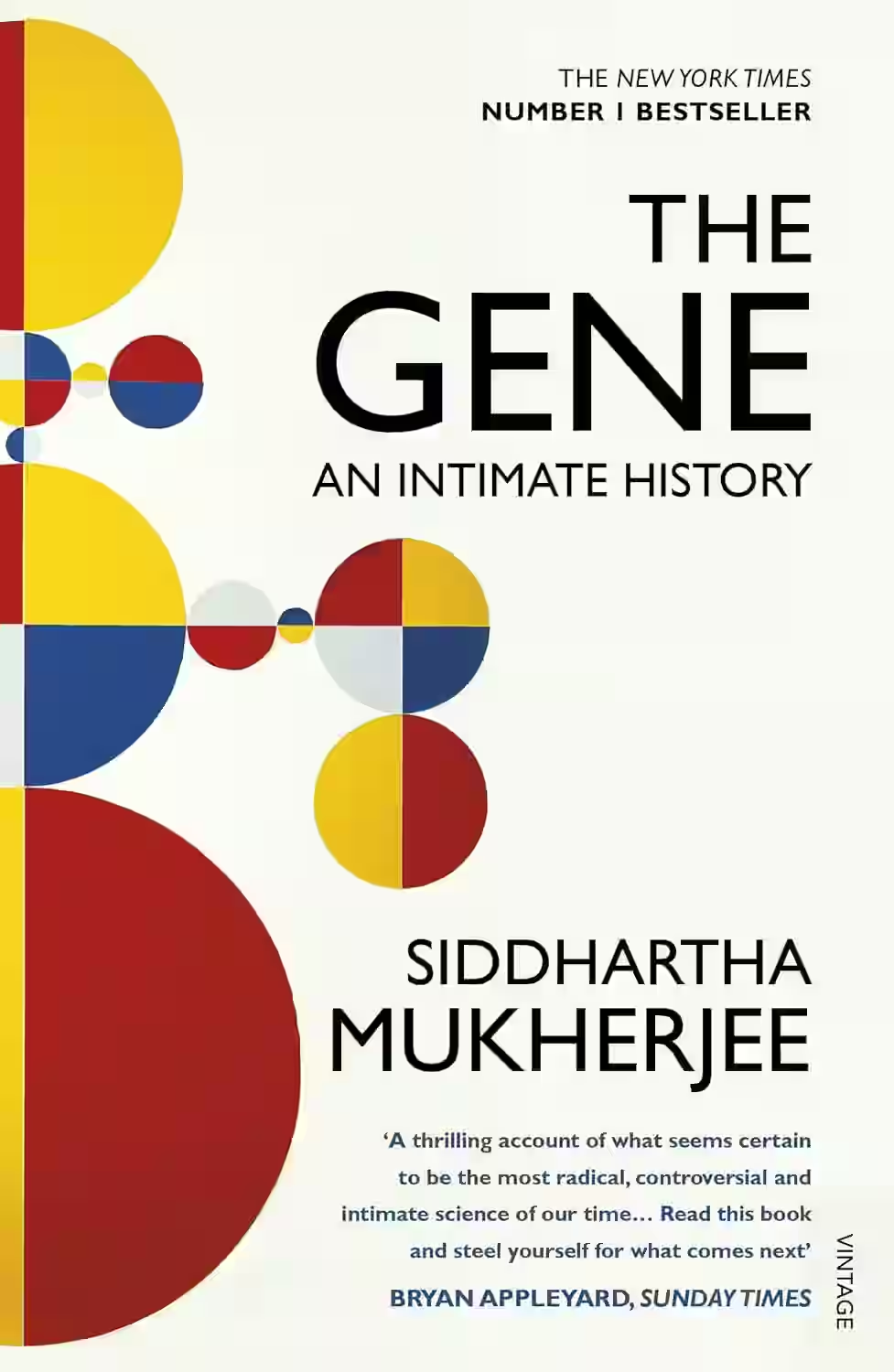
The Gene: An Intimate History
In The Gene, Siddhartha Mukherjee traces the history of genetic science, weaving together personal stories, scientific milestones, and ethical dilemmas. From Mendel’s pea plants to the Human Genome Project, the book explores how our understanding of heredity has evolved and what it means for the future of medicine and identity. Mukherjee, an oncologist and researcher, brings clarity and humanity to complex topics, making the science both accessible and emotionally resonant. The book also examines the dark side of genetics, including eugenics and discrimination. The Gene is a masterful blend of biography, science writing, and philosophical reflection.
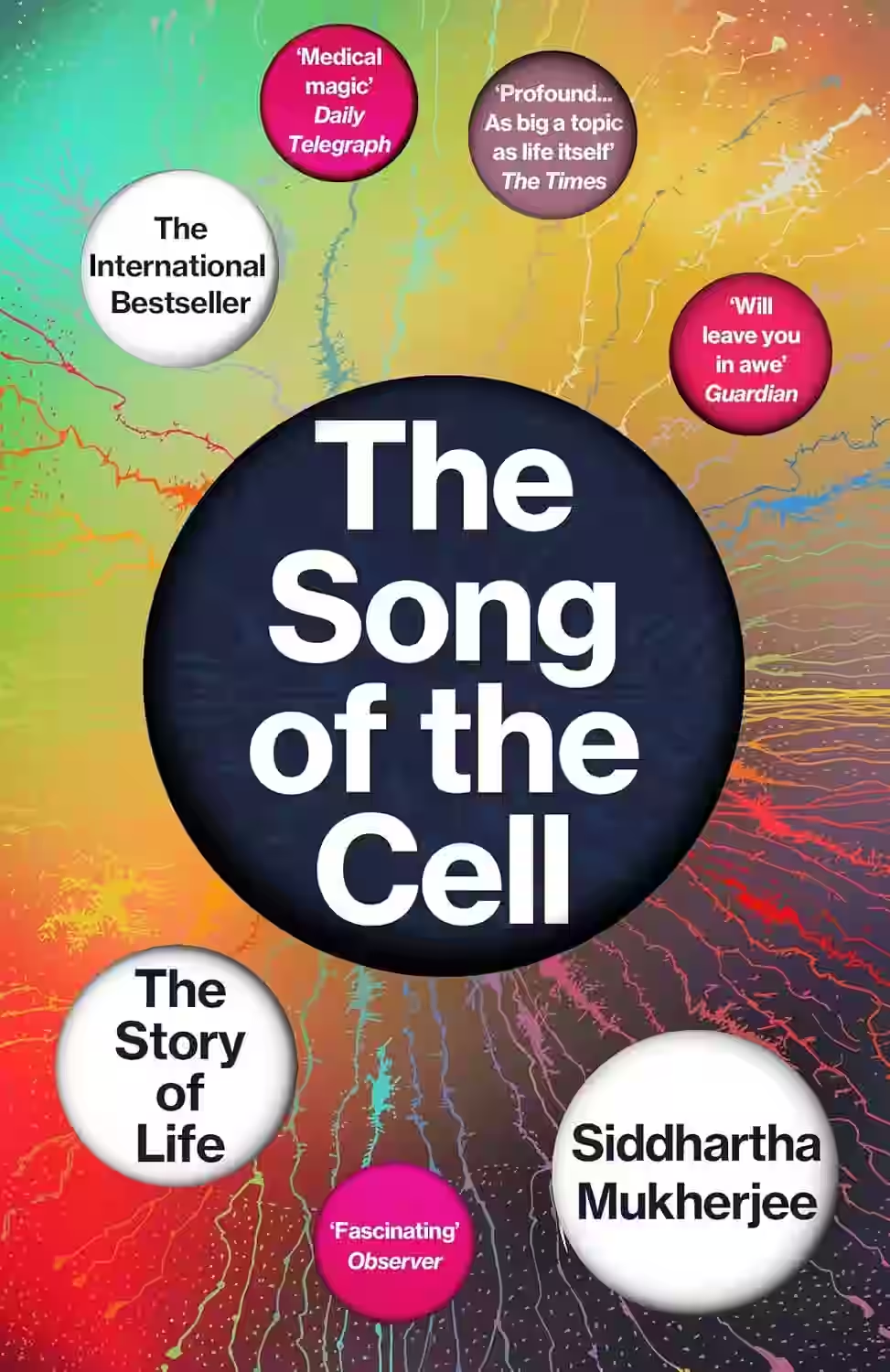
The Song of the Cell
In The Song of the Cell, Pulitzer Prize–winning author and oncologist Siddhartha Mukherjee takes readers on a fascinating journey into the world of cell biology. From the discovery of the cell to cutting-edge developments in regenerative medicine and immunotherapy, Mukherjee explains how our understanding of cells shapes the future of medicine. Blending science, history, and narrative, he makes complex topics accessible without sacrificing depth. The book is both a celebration of scientific discovery and a meditation on what it means to be alive. The Song of the Cell is essential reading for anyone interested in biology, medicine, or the future of health.
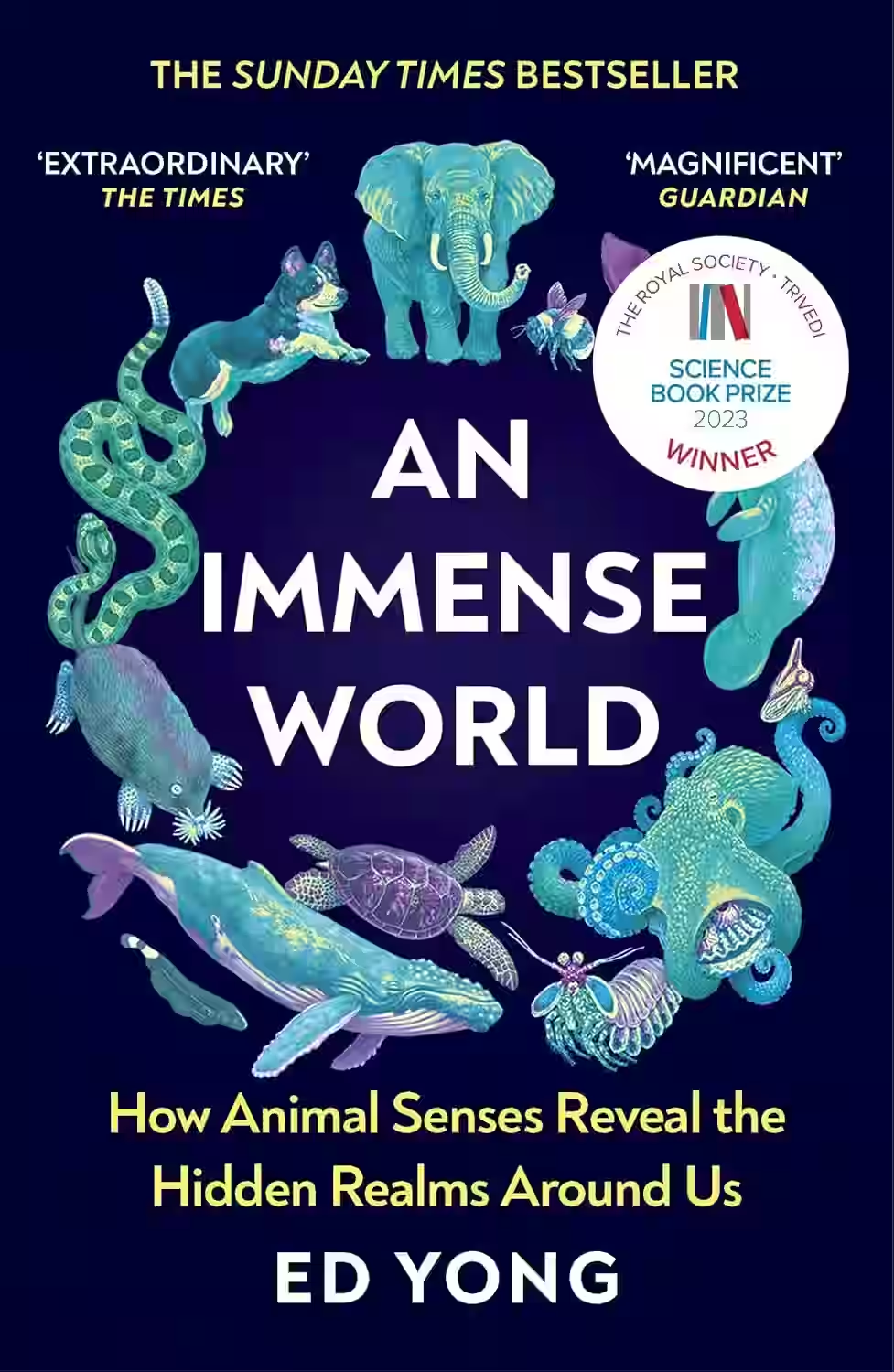
An Immense World: How Animal Senses Reveal the Hidden Realms Around Us
by Ed Yong
An Immense World: How Animal Senses Reveal the Hidden Realms Around Us by Ed Yong is a captivating exploration of the myriad ways animals perceive their environments. Yong introduces readers to the concept of the Umwelt, the unique sensory world each species inhabits. Through engaging narratives, he delves into extraordinary sensory abilities: turtles navigating via Earth's magnetic fields, beetles detecting fires from miles away, and scallops possessing dozens of eyes. Yong's vivid storytelling not only illuminates these hidden realms but also underscores the impact of human-induced sensory pollution on wildlife. Celebrated for its insightful prose, the book earned the 2023 Andrew Carnegie Medal for Excellence in Nonfiction and was named one of The New York Times' "10 Best Books of 2022" .
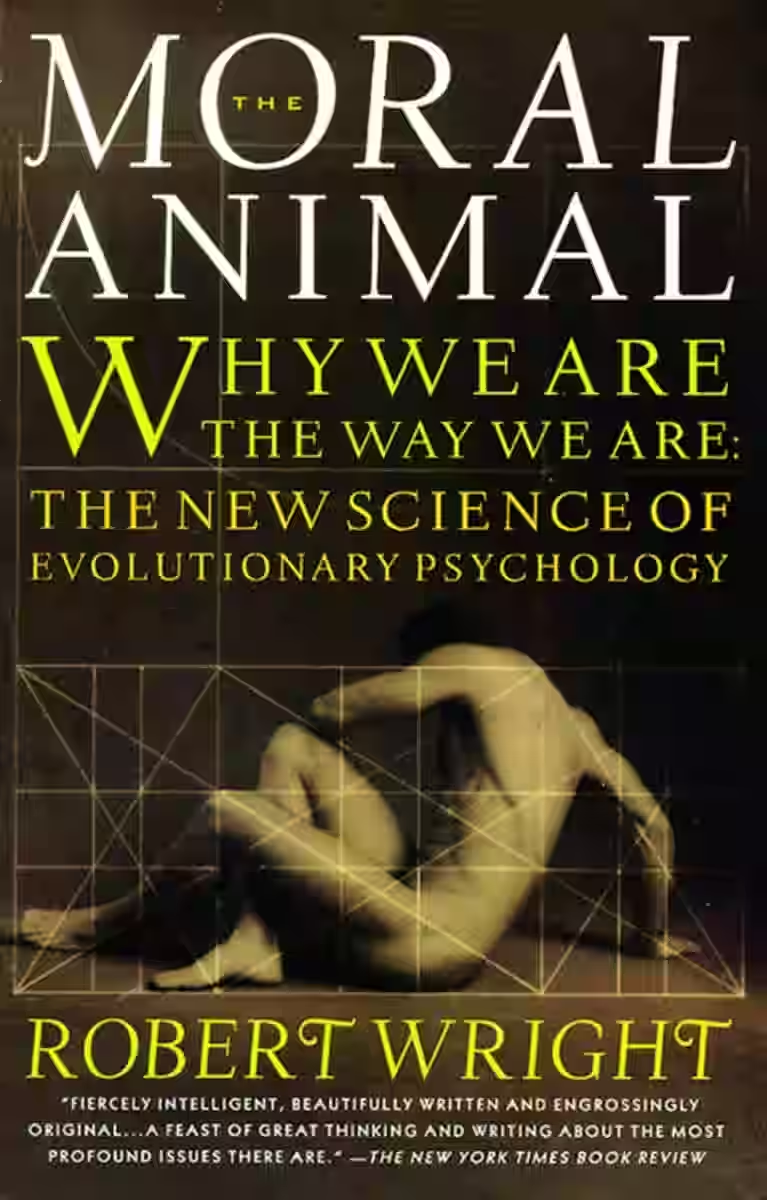
The Moral Animal
In The Moral Animal, Robert Wright applies evolutionary psychology to human behavior, relationships, and ethics. Drawing on Darwinian theory, he explains how natural selection has shaped not just our bodies but also our minds—our moral instincts, mating preferences, and social behaviors. The book investigates how selfish genes can produce selfless actions and how our evolutionary history influences love, jealousy, parenting, and morality. Wright uses Charles Darwin’s life as a case study, linking theory with biography. Thought-provoking and accessible, it challenges assumptions about free will, altruism, and the roots of human nature.
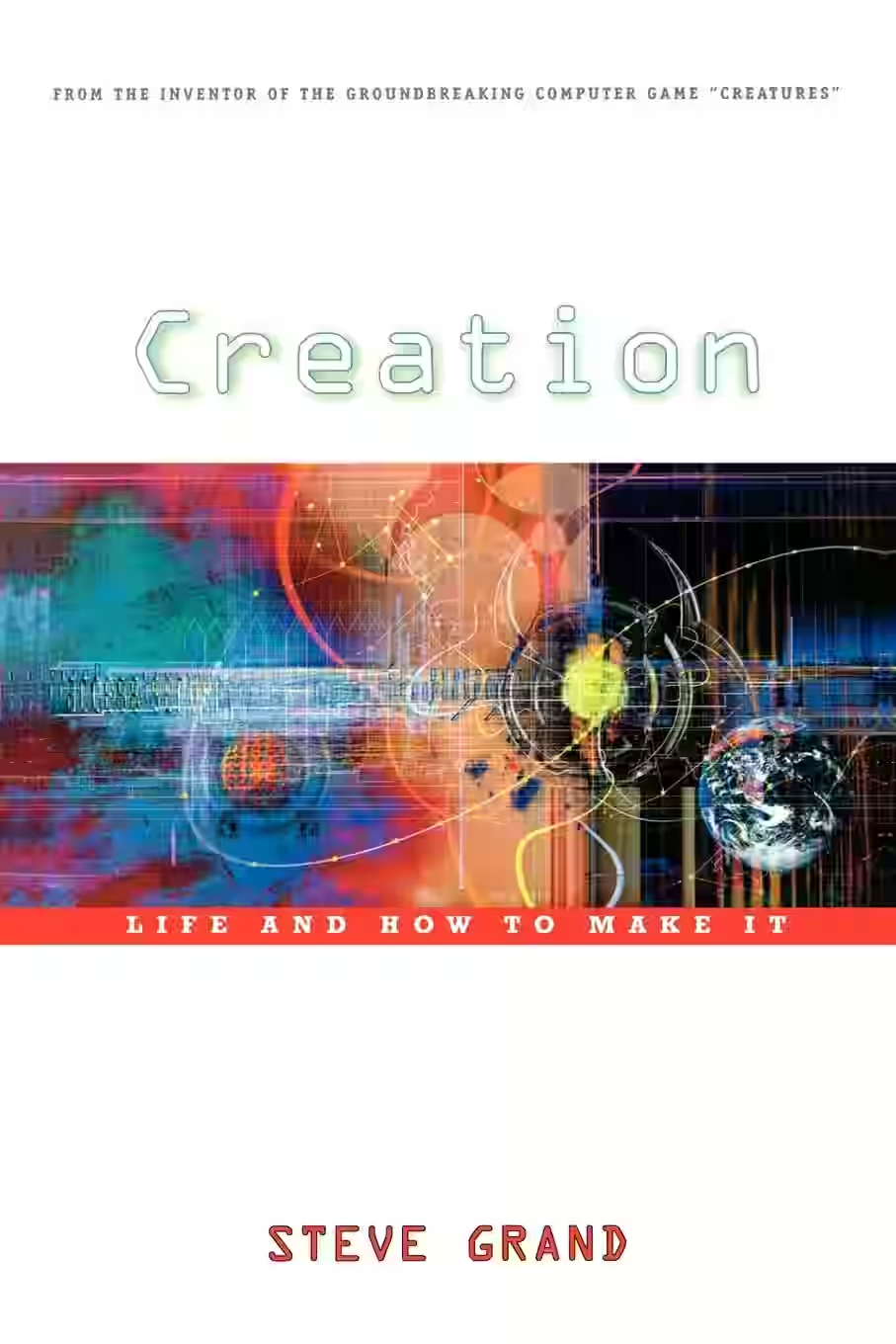
Creation: Life and How to Make It
In Creation, Steve Grand—creator of the artificial life game Creatures—explores the nature of life, intelligence, and consciousness from the perspective of an artificial life researcher. Blending computer science, biology, and philosophy, Grand argues that life can be understood and even recreated through complex, self-organizing systems. He challenges traditional views of the mind and body, suggesting that understanding emergence and connection is key to replicating living processes. With imagination and technical insight, Creation is a provocative meditation on what it means to be alive—and whether machines can one day truly think, feel, and evolve like biological organisms.

The Wide Wide Sea
Hampton Sides' The Wide Wide Sea provides an account of the final voyage of Captain James Cook, emphasizing the dramatic encounters and tragic events that defined this historical journey. Sides delves into the 18th-century world of maritime exploration, highlighting the complexities and significance of Cook's interactions with Indigenous populations. The narrative offers a detailed examination of imperial ambition, first contact, and the fateful consequences of exploration, shedding light on a pivotal moment in history with clarity and depth.
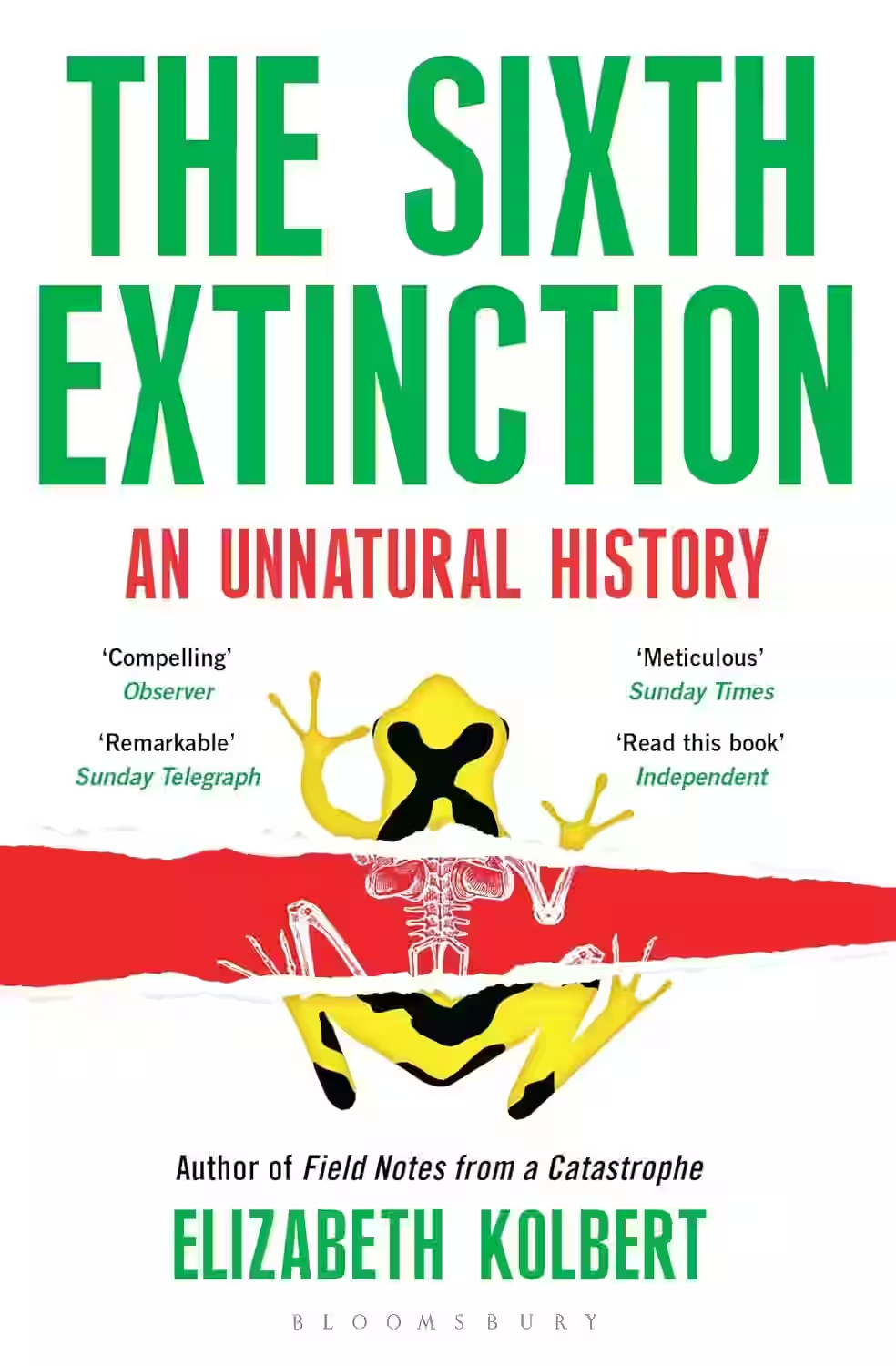
The Sixth Extinction
In The Sixth Extinction, Pulitzer Prize–winning journalist Elizabeth Kolbert investigates the ongoing mass extinction event caused by human activity. Blending field reporting, scientific research, and historical context, Kolbert explores how climate change, habitat destruction, and invasive species are rapidly altering the planet’s biodiversity. She travels the globe—from rainforests to coral reefs—to document species on the brink and speak with scientists studying the crisis. The book highlights how humans have become a geological force, accelerating extinction at an unprecedented rate. Sobering yet eloquent, The Sixth Extinction is a vital call to awareness about the fragility and interdependence of life on Earth.

Why We Sleep
In Why We Sleep, neuroscientist Matthew Walker provides a compelling look at the critical role sleep plays in our health and well-being. Backed by cutting-edge science, he explains how sleep affects memory, creativity, immune function, emotional stability, and longevity. Walker also examines the consequences of chronic sleep deprivation and offers practical tips for improving sleep hygiene. Written in accessible language, the book demystifies sleep’s biological purpose and underscores its importance as a pillar of mental and physical health. A wake-up call for modern society, Why We Sleep champions rest as essential, not optional, for a thriving life.